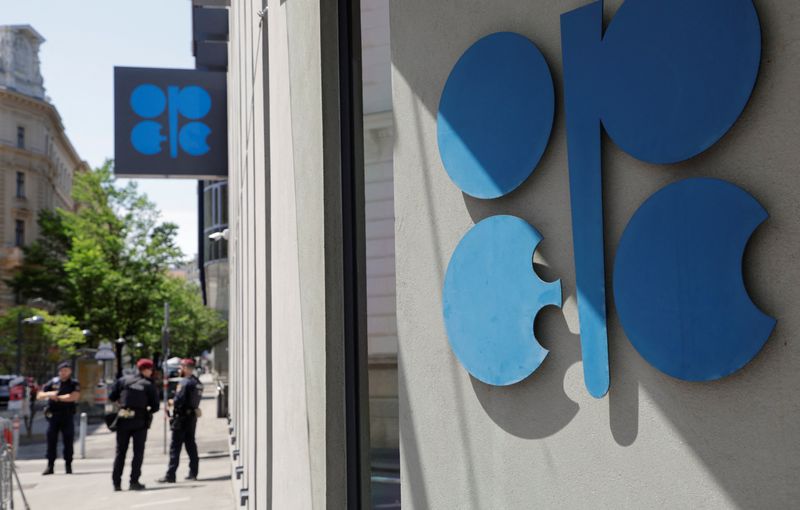(Reuters) - The Organization of the Petroleum Exporting Countries (OPEC) and its allies, including Russia, are known as OPEC+ and will meet in Vienna, Austria, on Nov. 26 to discuss their joint output policy.
Below are key facts about OPEC+ and its role.
What are OPEC and OPEC+?
OPEC was founded in 1960 in Baghdad by Iraq, Iran, Kuwait, Saudi Arabia and Venezuela with an aim of coordinating petroleum policies and securing fair and stable prices. Now, it includes 13 countries, which are mainly from the Middle East and Africa. They produce around 30% of the world's oil.
There have been some challenges to OPEC's influence over the years, often resulting in internal divisions, and a global push towards cleaner energy sources and a move away from fossil fuels could ultimately diminish its dominance.
OPEC formed the so-called OPEC+ coalition with 10 of the world's major non-OPEC oil-exporting nations, including Russia, at the end of 2016.
OPEC+ represents around 40% of world oil production and its main objective is to regulate the supply of oil to the world market. The leaders are Saudi Arabia and Russia, which produce around 9 and 9.5 million barrels per day (bpd) of oil, respectively.
How does OPEC influence global oil prices?
OPEC member states' exports make up around 60% of global petroleum trade. In 2021, OPEC estimated that its member countries accounted for more than 80% of the world's proven oil reserves.
Because of the large market share, the decisions OPEC makes can affect global oil prices. Its members meet regularly to decide how much oil to sell on global markets.
As a result, when they lower supply when demand falls, oil prices tend to rise. Prices tend to fall when the group decides to supply more oil to the market.
At the last OPEC+ meeting in June, Saudi Arabia pledged to make a deep cut of 1 million bpd to its output in July on top of a broader OPEC+ deal to limit supply into 2024 as the group sought to boost flagging oil prices.
Since then, Saudi Arabia has extended the additional voluntary cut until the end of this year.
Oil prices on Nov. 16 slumped by about 5% to a four-month low amid economic growth concerns. They have since recovered some ground on expectations that OPEC+ will take action to shore up prices.
Prices, however, have largely brushed off rising tensions in the Middle East.
How do OPEC decisions affect the global economy?
Some of the production cut decisions have had significant effects on the global economy.
During the 1973 Arab-Israeli War, Arab members of OPEC imposed an embargo against the United States in retaliation for its decision to re-supply the Israeli military, as well as other countries that supported Israel. The embargo banned petroleum exports to those nations and introduced cuts in oil production.
The oil embargo pressured an already strained U.S. economy which had grown dependent on imported oil. Oil prices jumped, causing high fuel costs for consumers and fuel shortages in the United States. The embargo also brought the United States and other countries to the brink of a global recession.
In 2020, during COVID-19 lockdowns around the world, crude oil prices slumped. After that development, OPEC+ slashed oil production by 10 million barrels a day, which is equivalent to around 10% of global production, to try to bolster prices.
Which countries are OPEC members?
The current members of OPEC are: Saudi Arabia, United Arab Emirates, Kuwait, Iraq, Iran, Algeria, Angola, Libya, Nigeria, Congo, Equatorial Guinea, Gabon and Venezuela.
Non-OPEC countries in the global alliance of OPEC+ are represented by Russia, Azerbaijan, Kazakhstan, Bahrain, Brunei, Malaysia, Mexico, Oman, South Sudan and Sudan.
Sources: Reuters news, World Economic Forum website, OPEC website, U.S. Department of State website
